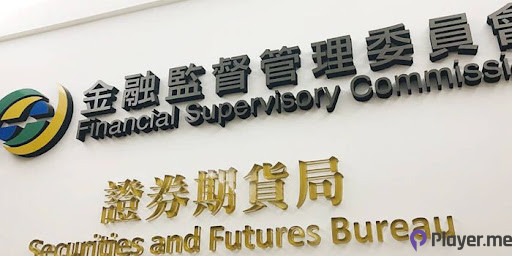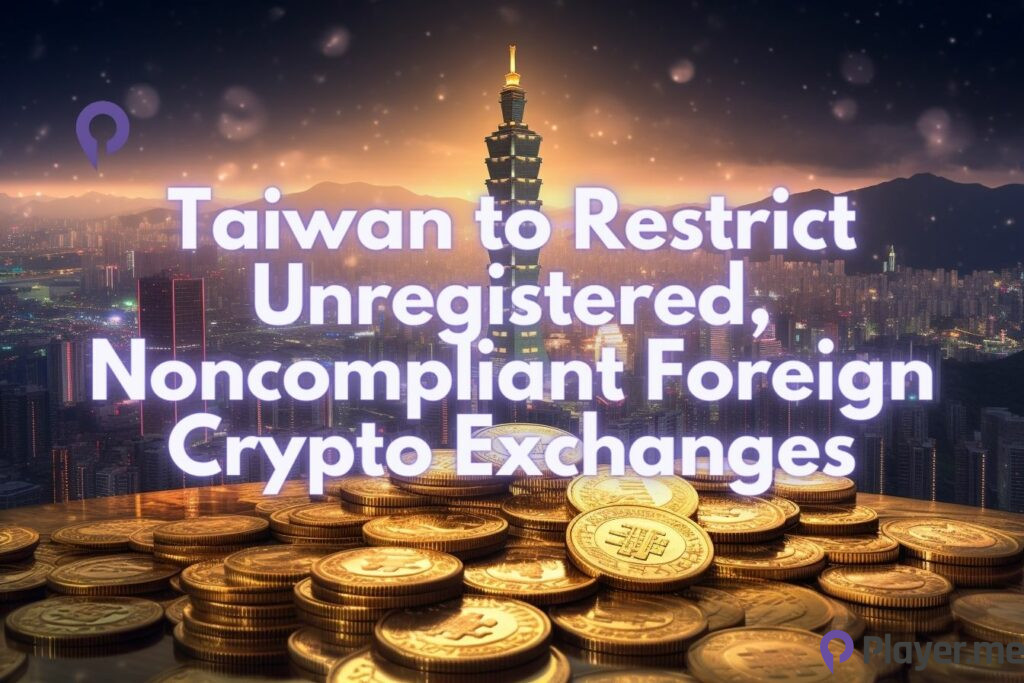In the digital world, the dominance of digital asset trading is evident across various facets. Nevertheless, there are inherent potential risks associated with this trend. Many developed nations have introduced regulatory frameworks and guidelines to address these concerns and maintain the integrity of digital assets while mitigating fraud risks, as mentioned in https://player.me/crypto-tax-reporting-rules/
Notably, on September 7th, Taiwan’s Financial Supervisory Commission (FSC) made headlines by unveiling its intention to propose similar rules and regulations. The local media platform, Central News Agency, first reported this development. According to reports from this media outlet, the proposed draft encompasses approximately ten guidelines to enhance the transparency of information disclosure for both customers and trading platforms. Additionally, the draft mandates operators to oversee the listing and delisting processes.
This article examines the contents of the draft, shedding light on its potential implications for non-compliant cryptocurrency exchanges in the future.
Background on Taiwan’s Crypto Market

In 2023, the Central Republic Of China (CBC) and FSC stated in a press release that virtual currencies are highly speculative digital virtual commodities in Taiwan. Later, FSC allowed the local banks to accept or exchange Bitcoin (BTC).
Taiwan’s Money Laundering Control Act (MLCA) was revised, and regulation of virtual currency platforms was approved. It was surely a big step in ensuring compliance with the digital world. New rules addressed money-laundering issues in 2021 and made cryptocurrency exchanges comply with the guidelines. Taiwan’s major crypto exchanges have implemented the anti money-laundering procedures proposed by the FSC and the Financial Action Task Force (FATF).
Unregistered Overseas Crypto Exchanges
The United States Commodity Futures Trading Commission (CFTC), launched in 2023, is helping crypto investors avoid risks and frauds. You can learn ways to protect the privacy of digital assets here. It has updated its Red List and added over 200 non-registered crypto exchanges.
The red list is then moved through the financial industry partners with the registration information by the National Future Association. The updated red list includes 24OptionForex, BBT Capital Limited, BBT Forex, CapitalInvestOption, CedarFX, Coingate ForexPro, ExtremeEarners, Prosperity LLC, SmartBitOption, and more.
Taiwan’s Proposed Changes

Though an official announcement has yet to be made on the proposed regulations, it is expected to become official by the end of this month. The main element among the 10 guidelines is the rule that will stop foreign Virtual Asset Service Providers (VASPs) from participating in business activities in Taiwan.
These VASPs must maintain separate accounts to continue their services to customers and platforms. Money laundering activities should be encountered with mandatory and effective strategies. FSC aims to ban all crypto exchanges not registered in Taiwan or adhering to its Anti-Money Laundering Act (AML).
Importance of Regulations

Registered and compliant cryptocurrency exchanges have been considered safer for investors and the nation’s economy. Registered exchanges are strictly adhered to the regulatory standards. They are well subjected to regular audits to boost the trust song of the investors and exchanges.
With updated rules and regulations, Taiwan aims to reduce the risks associated with digital trading and transactions and provide a more scalable and predictable environment. Conversely, non-compliant exchanges face legal consequences, including fines, operational suspensions, or criminal prosecution.
Potential Impacts on Crypto Investors

Crypto enthusiasts love to invest in new and emerging cryptocurrencies all over the globe. Exchanges with registered agendas offer secure and reliable investments. But non-compliant ones are somewhat unpredictable in this regard.
For crypto enthusiasts and investors, these regulatory changes in Taiwan will likely lead to a shift in their investment strategies. They may need more transparency in their operations, security protocols, and investor safeguards. This unpredictability can result in higher risks for investors, including the potential for fraud, hacking, and loss of funds.
Related: The Future of AI: Emerging Technologies and Exciting Possibilities
Legal Consequences for Noncompliance
The regulatory authorities of AML, including FSC, CBC (Taiwan), and the Investigation Bureau, oversee the financial settlements in Taiwan. Noncompliant agencies can pay fines or get a suspension of operations based on the severity.
Noncompliance with AML regulations poses significant risks to businesses. It can inflict reputational damage by eroding customer trust due to a failure to meet AML standards. Similarly, noncompliance exposes businesses to legal and financial perils, such as hefty fines, operational suspensions, or potential criminal prosecution.
Conclusion
In response to the growing presence of various unregistered foreign cryptocurrency exchanges. Taiwan’s FSC has strategically planned to introduce stringent regulations for VASPs and exchanges. The FSC, committed to aligning with international best practices and future regulatory adjustments, is set to make an official announcement by the end of September.
Regulatory efforts are made to gain investor trust and mitigate risks in the crypto space. These changes may reshape crypto enthusiasts’ investment strategies, favouring registered and compliant exchanges that adhere to regulatory standards and transparent operations. This move reinforces the FSC’s role as Taiwan’s primary cryptocurrency regulator, highlighting its commitment to safeguarding the integrity of the crypto market within its jurisdiction. There will be another topic regarding blanket crypto.
Frequently Asked Questions
What Is the Reason Behind Taiwan’s Decision to Restrict Overseas Crypto Exchanges?
Taiwan’s choice to limit foreign cryptocurrency exchanges is driven by its goal of strengthening regulatory control and maintaining the integrity of its cryptocurrency market. By implementing restrictions on unregistered overseas crypto exchanges, Taiwan seeks to mitigate potential threats related to money laundering, fraud, and illicit financial transactions.
How Will Taiwan’s Regulations Affect the Global Cryptocurrency Market?
Taiwan’s regulations can establish clear regulations to follow by the other countries. Cryptocurrency exchanges may need to adhere to Taiwan’s regulations to offer services to Taiwanese citizens. It could lead to greater compliance efforts and potentially higher costs for these exchanges.
Is Taiwan Collaborating with Other Countries on These Regulations?
An official announcement has yet to be made. However, predictions are made that Taiwan, like many other countries, may have considered discussions with other nations, regulatory bodies, or international organisations to share insights into cryptocurrency regulation. Such collaborations can be important in addressing the global nature of cryptocurrencies and the need for consistent regulatory approaches to mitigate risks associated with the crypto industry.





